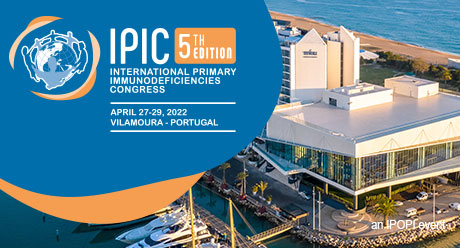Early diagnosis and care
Objective 1: Improve access to early diagnosis & patient-centred care
EU PID Forum at the European Parliament
- EU PID Forum: Shaping the future of research: patients as equal partners
On May 14, 2025, the International Patient Organisation for Primary Immunodeficiencies (IPOPI) organised a PID Forum titled “Shaping the future of research: patients as equal partners”. The event took place in the European Parliament in Brussels and was hosted by MEP Romana Jerković (Croatia) and MEP Nicolás González Casares (Spain).
PIDetect: Enhancing PID Diagnosis in Low- and Middle-Income Countries
- IPOPI PIDetect 2023: Enhancing Diagnostic abilities in Moldova
The IPOPI PIDetect programme aims to enhance PID diagnosis in low- and middle-income countries by providing intensive training to selected doctors. In 2023, two Moldovan clinicians received training at the Romanian PID reference centre in Timisoara, led by Prof Mihaela Bataneant. Following this, a hybrid conference in Chisinau helped to disseminate the acquired knowledge on PID to a broader medical community.
- IPOPI PIDetect 2022: Enhancing Diagnostic Abilities in Bangladesh
The IPOPI PIDetect programme aims to enhance PID diagnosis in low- and middle-income countries by providing intensive training to selected doctors. From 2022 to 2024, three healthcare professionals from Bangladesh received clinical and laboratory training at PGIMER in India, led by Prof Surjit Singh. The programme concluded with a CME-accredited conference in Dhaka, ensuring the dissemination of newly acquired knowledge and skills to a broader medical community.
IPOPI WHIM registry workshop
- On October 25, IPOPI had the pleasure of bringing together key opinion leaders in the field of WHIM syndrome to an online workshop, focused on understanding the current state of data collection on WHIM throughout the world and identifying the unmet needs remaining.
IPIC – International Primary Immunodeficiencies Congress
IPIC 5th Edition was held in beautiful Vilamoura, Portugal, over 27 to 29 April 2022.
IPIC5th Edition saw the joining together of 600 delegates interested in learning more about diagnosis and clinical care of primary immunodeficiencies (PIDs). Over 130 posters for presentation were approved with most presented by young scientists and physicians with an interest in PID.
The program celebrated the inspiring work that has been carried out by the global PID community however the event also highlighted the many challenges which still need to be addressed. The strength and continued success of IPIC is due to the well-balanced scientific program that is clinically orientated with input from key PID stakeholders namely doctors, scientists, patients and nurses – designed to complement other existing international congresses and scientific meetings.

SCID Newborn Screening campaign
Severe Combined Immunodeficiency (SCID) is the most severe form of PID and a paediatric emergency. Children born with SCID lack a working immune system and will die in the first year of life if undiagnosed and untreated. Screening newborn babies for SCID is possible and cost-effective. Many countries are including screening of SCID in their national newborn screening programmes – details in the IPOPI PID Map
IPOPI strives to ensure that babies born with SCIDs can have access to the earliest diagnosis possible allowing for successful and curable treatment.
IPOPI started raising awareness of the importance of SCID newborn screening (NBS) in the late 2000s in partnership with the European Parliament and with the strong commitment and support from MEP Ms. Glenis Willmott. A call for EU Recommendations on newborn screening for rare diseases such as SCID was the starting point and many regional and national SCID campaigns have followed.





